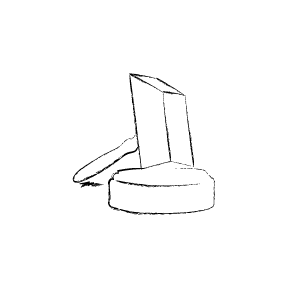Getting paid extra for delayed paychecks under the FLSA
When the federal government shut down, mired in Congressional gridlock, they couldn't close the prisons. They didn't want to shut down all the airport security screening either. And what about government employees at hospitals?
Fact is, a lot of employees were considered too immediately essential to be given the time off. But with no money authorized to pay these employees, the executive decided to delay paying them for their work until appropriations were authorized.
There's just a couple problems with that - most significantly, it means they weren't paid minimum wages or overtime required under the Fair Labor Standards Act on their regularly scheduled pay day. The government argued no harm, no foul
because they were paid everything they were owed, and it was only delayed a week or two.
The Court of Federal Claims disagreed. The court held that on time
payment was a requirement of the statute, based in part on the Supreme Court's venerable decision in Brooklyn Savings Bank v. O'Neil, 324 U.S. 697 (1945).
What this means is that the employees may get liquidated damages,
which is, in essence, an extra paycheck over and above what they should have been paid. So, for example, if a $700 paycheck is delayed for a month, then, in addition to paying you the $700 back, your employer also owes you an extra $700 just because the payment was late.
The same applies to overtime. It is illegal to delay paying overtime - the overtime payment must be included in the same, regularly scheduled check as the rest of the pay for that week. A delayed overtime payment entitles an employee to liquidated damages that double the overtime payment.
This is true no matter who you work for - if you are covered by any minimum wage law, then you are entitled to payment on time.
I'm pursuing a case like this right now against the United States Postal Service for repeatedly missing payments and screwing up deductions. You can read the publicly available complaint here.



Pursuant to MRPC 7.4(a)(2) FREE BACKGROUND INFORMATION AVAILABLE UPON REQUEST
This site is for general information only, and creates no attorney-client relationship. Sending inquiries to the firm does not create an attorney-client relationship. By calling or emailing the firm, you are consenting to receive return calls, emails, mailings and text messages from the firm.
To get legal advice about an employment law, labor law, federal employee law, whistleblower protection, labor unions, worker cooperatives, immigration, discrimination, harassment, wrongful termination, severance, or any related question, you must first have a conflicts check by the firm. We represent exclusively workers, worker cooperatives and unions, but we still must check for potential conflicts of interest, for example, between a supervisor and employee.
First provide the firm with your name, and the name of the person you are making claims against. This allows the firm to check for such conflicts of interest. Until you receive confirmation that there is NO CONFLICT, none of the information you provide will be considered confidential. Do NOT provide any confidential information before we have asked you to do so.
Once we have confirmed there is no conflict, you may discuss your matter with staff in a little more detail, and, if requested, make an appointment. If at your appointment the firm accepts you as a client in writing, then the attorney will be able to provide you with employment law advice.
.
.
.